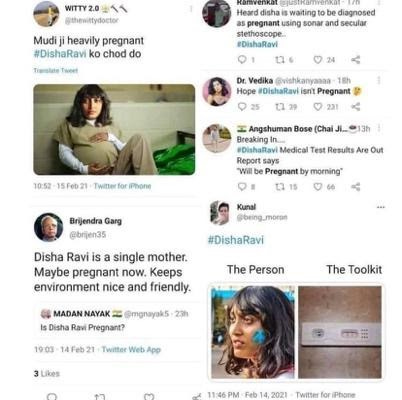Jasneet Kaur: India’s Long-Standing Use Of Sexual Assault To Silence Dissent
The impact of these crimes committed against women has catastrophic impacts, with consequences not only for their life but also to those of their children
Jasneet Kaur
February 23, 2021 | 3 min. read
Trigger Warning: Conversations about violence, sexual assault, and rape.
The Indian government has continuously used sexual violence against opposition to silence dissent.
In the book “Six Glorious Epochs of Indian History”, preeminent Hindutva leader Savarkar justifies the use of rape as a political tool to suppress communities. Forms of sexual violence including rape have also been largely used in genocides including the 1984 Sikh genocide, 2002 Gujarat massacre of Muslims, and the 2008 carnage against Dalit Christians.
One of the main aims of this treatment is to inflict mental and physical trauma on minorities - not solely upon women, but the community as a whole to scare them from speaking out further.
Another aim is to alter minority lineage - whilst raping Sikh women in the 1984 genocide, mobs and police officials would make remarks regarding altering the DNA of the Sikh kaum. As found in the Punjab Human Rights Organisation (PHRO) report, “The Rape of Punjab: Indian State’s Indignities on Sikh Women and Children”
“…the Central government has granted unlimited powers to armed units [“black cats”] so that they can suppress the voice of revolution in Punjab. The police and the security have started these atrocities on women for they have been unable to bring to submission the young people of Punjab by resorting to unlawful arrests, torture in special prisons and even killings in so-called encounters. This is a direct challenge to the self-respect and dignity of the people of Punjab.”
The National Crime Records Bureau claims in 2019 that India documented on average 87 daily rape cases and 4,05,861 cases overall of crime against women - a rise of over seven percent from 2018.
As unfortunately recently seen with Nodeep Kaur’s detainment, sexual assault is often used to silence and suppress women in custody. Her sister, Rajvir Kaur, claims Nodeep Kaur had injury marks on her private parts and had asked for medical tests to be done, which unsurprisingly are yet to surface.
Some other examples of previous rape cases used to silence dissent include that of Shaheed Bibi Amandeep Kaur, Shaheed Bibi Harpreet Kaur, and Shaheed Bibi Resham Kaur.
Amandeep Kaur was only 20 when arrested, raped, tortured, and finally killed by Indian police. The basis of her unjust treatment was because she was the sister of a kharku. Her mother was also brought to the police station where she was tortured and raped. The violence imposed upon both women was a form of revenge directed at Shaheed Bibi Amandeep Kaur’s brother and his contemporaries.
Harpreet Kaur was put into custody at the tender age of 15 for her “crime” of knowing Sikhs actively resisting oppression from the Indian government. Though the exact brutality of her torture was never publicized, multiple unconfirmed reports claim she was subjected to sexual violence. She was killed and cremated in 1992, with her family recognizing her ashes from her karra.
Finally, Resham Kaur and her 8-month-old baby were arrested by Punjab Police. The reason for the arrest was that she was from a family actively leading resistance against the Indian government. Her baby was subjected to torture after seeing usual methods of torture against Resham Kaur fail. Eventually, she was killed in 1994 by the police, whilst newspapers announced she committed suicide.
These are only a few examples of how the Indian state has operated, as the PHRO report found: “This chronicle of police atrocities is hardly complete. It is impossible to survey all the villages of Punjab. People are afraid even to speak.”
More recently an Indian activist named Disha Ravi was arrested by the police for her role in raising awareness on the Farmer’s Protest. She has now been released on bail with the courts specifically noting the lack of evidence to charge her for sedition.
To show how acceptable the Indian sexual assault tactic still is in the 21st century, it was revealed shortly after her arrest that BJP/Modi supporters were actively calling for the rape of Ravi.
The impact of these crimes committed against women has catastrophic outcomes, with consequences not only for their life but also to those of their children. A lifelong trauma integrated into many generations has therefore been created.
Jasneet Kaur is based in London, UK, and is currently a funded Master’s student at Imperial College London, and is the President of Imperial’s Sikh Society. If you want to message Jasneet, please contact her on Instagram at @imperialsikhsoc.
Baaz is home to opinions, ideas, and original reporting for the Sikh and Punjabi diaspora. Support us by subscribing. Find us on Twitter, Instagram, and Facebook at @BaazNewsOrg. If you would like to submit a written piece for consideration please email us at editor@baaznews.org.



